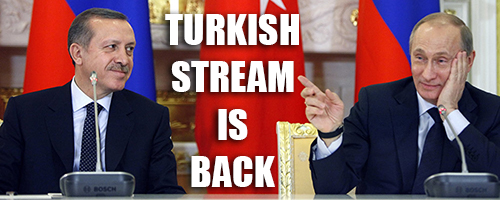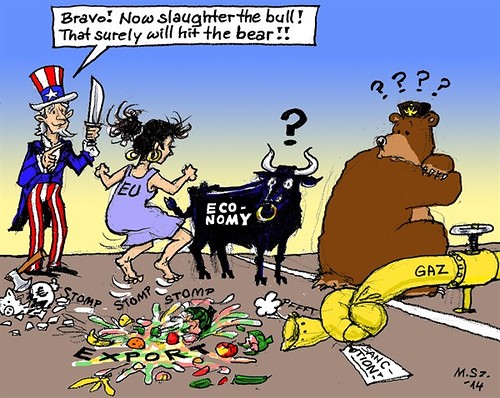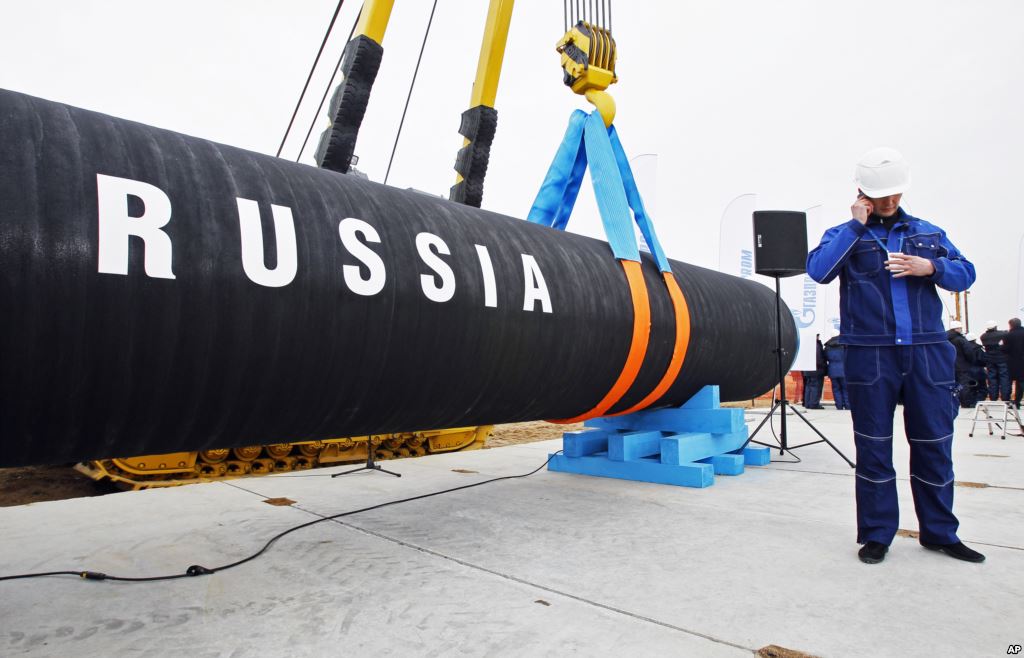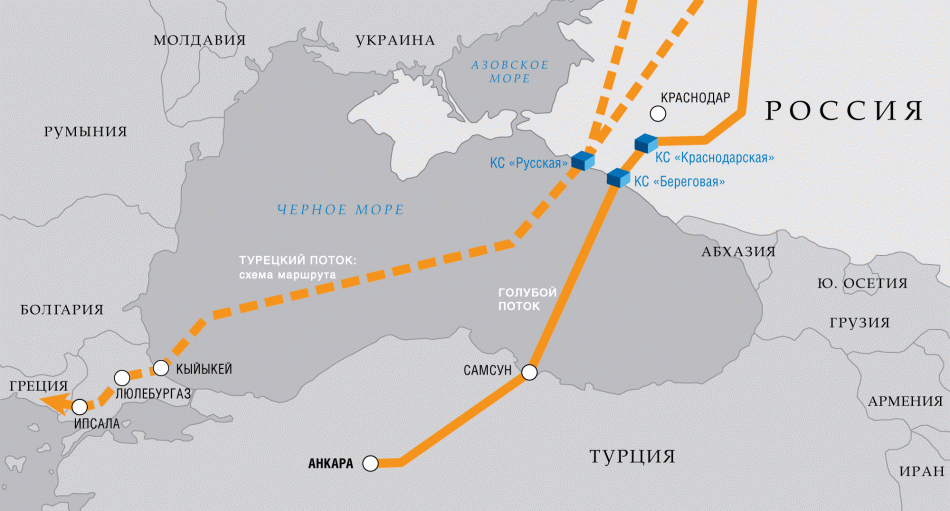 by James Corbett
by James Corbett
corbettreport.com
October 12, 2016
When Russian President Vladimir Putin and Turkish President Recep Tayyip Erdoğan shared a stage this week at the World Energy Congress in Istanbul, it marked the latest turn in a story so fraught with drastic ups and downs that it would give the most battle-hardened roller coaster enthusiast motion sickness.
To recap:
-In early 2014 the EU effectively killed Russia’s plan to run a “South Stream” gas pipeline across the Black Sea and through Bulgaria into southern Europe (much to the chagrin of the southeastern European states).
-Russia responded by announcing an alternative pipeline dubbed “Turkish Stream” that would send the gas through Turkey and on into southern Europe.
-Following the Turkish shootdown of a Russian SU-24 Fencer bomber over Syria in November 2015 the project was put in limbo when it became subject to Moscow’s retaliatory “restrictive measures.”
-Erdoğan responded to these restrictive measures by formally shelving the project in December 2015.
-The two presidents appeared at the World Energy Congress together on Monday before inking the long-awaited deal to begin work on the pipeline.
Clear as mud? Good.
So here’s the question: Why? Yes, pipelines make strange political bedfellows. We all know that by now. But why all the off again, on again theatrics? Why the grandstanding and tough talking and back slapping and deal signing?
Although it doesn’t seem to add up at the surface level, it’s actually much clearer when we take into account the various deep state forces at work in this story. In fact, the deal was almost inevitable when you discover it’s a win-win-win for (almost) everyone.
Firstly, the Russians’ interest in Turkish Stream has always remained the same: It provides a route for Russian gas into Europe through the “backdoor,” an EU-affiliated country that can act as an intermediary hub for transporting that gas through southern Europe. This is why Russia has insisted all along that Turkish Stream wasn’t dead, per se, just on hold.
Turkey wins because it reaps the political benefits (not to mention the economic ones) of becoming an energy hub. Not only does Turkish Stream bring enormous amounts of Russian gas into the country, but Ankara has simultaneously been in talks with Anglo-Dutch Oil and Royal Dutch Shell and with Algeria to begin construction of an “integrated energy complex.” This would make Turkey into an energy exporting powerhouse, increasing its bargaining position with the EU and its relative position over regional rivals, partners and suppliers (like Azerbaijan).
And the EU wins because, frankly, it needs Russian gas. With Nabucco-West dead and the Trans-Adriatic Pipeline expected to have 1/6th the capacity of Turkish Stream, dreams of a Caspian Sea source to quench western Europe’s gas thirst are just that: dreams.

And what of the Russia-Turkey tiff? That one is intriguing. Here’s what we do know: The pilots who shot down the Russian jet were detained after the coup. Although the Turkish government wouldn’t connect the two events, the mayor of Ankara did in no uncertain terms: “These rascals caused the rift between Russia and us. Why? Because they wanted to isolate us in world politics. Yesterday I had a guest from Russia, an adviser for Putin. He agrees with me.”
And so the narrative is that the same deep state elements that plotted against Erdoğan this summer were in fact plotting to undermine his rule quite a bit before then as well, a plausible assumption and one that was pointed out by myself and analysts like Sibel Edmonds at the time. Of course, this doesn’t explain why Erdoğan seemed to go along with it at the time, neither denouncing the shootdown or apologizing to Russia but doubling down with inflammatory rhetoric. Was he just stringing the coup plotters along until they made their move so he could counterattack with the pre-planned purge?
Such loose ends seem to have been hidden under the carpet for now at least, as Putin and Erdoğan are all smiles in public and only too happy to announce their big deal. Still, the underlying tensions are still there. Moscow and Ankara remain on different sides of the Syria divide, with Russia supporting Assad and Turkey supporting the mercenaries who have been brought in to destroy Assad’s country. Aleppo remains an obvious flashpoint for this tension, one addressed directly by the two in a joint news conference about the deal. According to Reuters:
Both men said they had agreed on the importance of delivering aid to the city of Aleppo, whose opposition-held eastern sector has been encircled by Russian-backed Syrian forces for all but a short period since July. “We have a common position that everything must be done to deliver humanitarian aid to Aleppo. The only issue is … ensuring the safety of aid delivery,” Putin said, adding he had agreed with Erdoğan to intensify military contacts.

So given widespread disgust with Erdoğan in the EU population these days and the hysteric demonization of Putin, all eyes have to be on the EU right now. Now EU leaders may differ on the relative merits of Russian gas imports, but the real question is: Will they attempt to decrease reliance on gas from Turkey, knowing that it’s sourcing from Putin? Do they have any alternative? At the moment, they don’t.
And so the oiligarchs (as well as Putin and Erdoğan) will be laughing all the way to the bank. As long as it’s not Deutsche Bank, this deal might work out well for them.









http://oilprice.com/Energy/Natural-Gas/Is-Nord-Stream-2-Still-A-Good-Deal-For-Europe.html
https://euobserver.com/energy/134665
http://www.debka.com/article/25700/The-Markets-for-Israel%E2%80%99s-Offshore-Gas-Dry-up
http://www.entsog.eu/maps/transmission-capacity-map
So let me get this straight. Now that Turkey is snuggling with Russia the German posture is Verboten to any gas out of Turkey, sorry Israel and your Leviathon well. But the Germans have not put a stop to Nord Stream II, it’s the Polish who are trying to stop that – oh those golden transfer fees. Meanwhile the USA is trying to stop Germany from becoming the sole transfer station of Russian gas to NWE, sorry Deutsche Bank, to ensure a good LNG market and keep Russia isolated.
Thanks again for the help, Matt. I’ve retweeted the link.